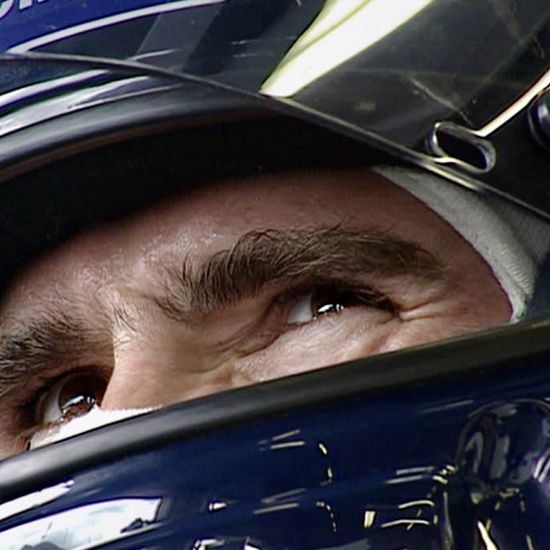By Pat Stacey
Hill is talking about the tragic death of his father, the two-time F1 world champion Graham Hill, in 1975. Graham and five members of his racing team died when the light aircraft he was piloting crashed on to a golf course in thick fog.
“I remember feeling I would like to have been with him on the plane,” Hill says. Even allowing for his grief and shock – he learned his father’s plane had crashed when the TV programme he was watching was interrupted by a newsflash – it was an extraordinarily dark thought for a 15-year-old boy, as he was then, to have.
But then Hill has always been a complex man. His wife Georgie, who’s the only other contributor to what is essentially Hill telling his own story in his own words, augmented by terrific archive footage, says he can be outwardly cheery and funny.
Indeed, there’s plenty of home movies of him goofing around with their children, as there is of his own father goofing around with him.
But she adds: “He’s one of the saddest people I’ve ever met.” It’s the sadness, the melancholy and, at a time when so many sporting biopics are nothing more than banal PR puffery, the raw honesty of its subject that make this such a compelling documentary.
Hill recalls his mother Bette’s fatalistic reaction when she learned Graham was dead: “I knew it was too good to last”
F1 has always been a sport haunted by the spectre of sudden death. Hill recalls his mother Bette’s fatalistic reaction when she learned Graham was dead: “I knew it was too good to last.”
The loss of a father and husband was a massive blow emotionally, but also financially. It emerged after the crash that he’d been flying without insurance or the correct licence, which left his estate open to claims by the families of the others killed in the crash. The Hills lost their home as a result.
Graham’s death cast a long shadow over his son’s life and career, but there’s no trace of bitterness in him. He clearly adored his father: “It was like the house came alive when he got back (from a race),” he says – and felt no pressure or need to emulate him.
“I didn’t even want to be a racing driver,” he says. He started out in motorcycle racing. One day, says Georgie, he came home and, out of the blue, announced he was going to become an F1 driver and, what’s more, he was going to win the world championship.
She didn’t doubt him for a moment. He might be one of the saddest people she’s ever met, yet he’s also “one of the most determined”.
Still, he was facing daunting obstacles. Apart from his inexperience, there was his age. “I ran out of money at 28,” he says. “No job, no career, a baby on the way.”
That baby, Oliver, was born with Down syndrome. Georgie remembers hospital staff quietly slipping her scraps of paper with the names of various care homes.
“He wasn’t even 12 hours old and they’d laid out his future for him,” she says. “I thought: ‘OK, if that’s all he’s worth, he’s worth a lot more to us.’”
Hill started his Grand Prix career in 1991 as a test driver with Williams. Test drivers simply didn’t become F1 world champions. But when Riccardo Patrese left Williams to drive for Benetton in 1993, Hill was unexpectedly promoted to the race team alongside world champion Alain Prost, whose signing by Williams had put Nigel Mansell’s nose out of joint.
As a record of Hill’s long rollercoaster ride to becoming world champion in 1996, when he’d already been told by Williams they were letting him go, this is thrilling stuff.
The documentary is at its most moving, though, when Hill looks back on his career and ponders what it all meant
It’s also excellent on Hill’s spiky relationship with the “imperious” (Hill’s description) Michael Schumacher, and on the profound impact the death of Ayrton Senna at the 1994 San Marino Grand Prix.
Poignantly, Hill won the Spanish Grand Prix that year, the same race his father had won after the death of fellow driver Jim Clark in 1968 which left Graham feeling similarly anguished.
The documentary is at its most moving, though, when Hill looks back on his career and ponders what it all meant.
It was never about trying to match or overtake the achievements of his beloved father; it was a bereft young man’s attempt, pointlessly, he knows now, to somehow “fix” the sad, broken past. In the crowded field of sports documentaries, this is laps ahead of most of them.
Rating: Four stars
